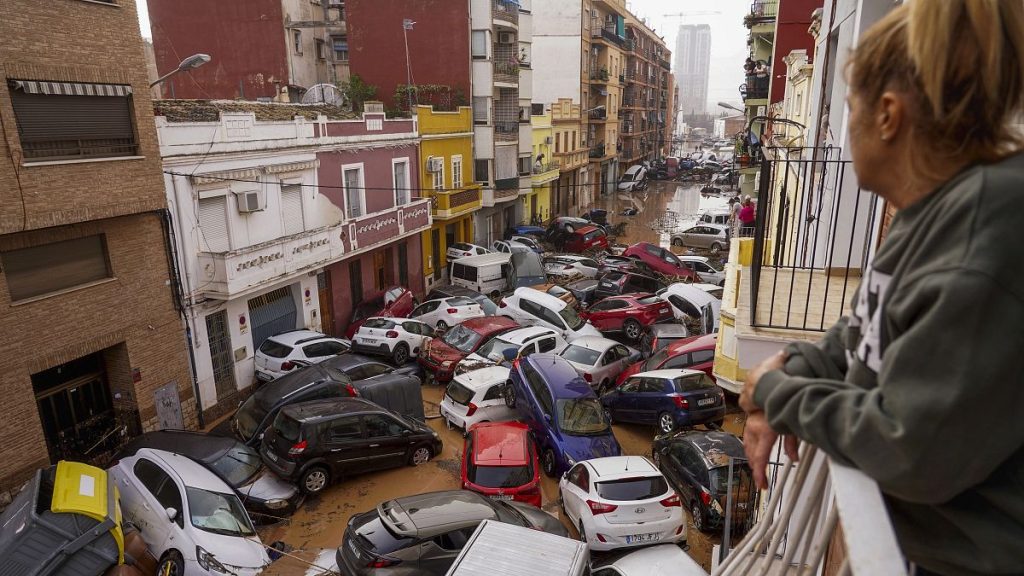In Valencia, tens of thousands of citizens have taken to the streets, fueled by outrage over the government’s inadequate response to catastrophic flooding that occurred a month ago. The deluge, caused by Storm Dana, resulted in Spain’s deadliest natural disaster in decades, claiming the lives of over 230 individuals. During the second significant protest since the storm hit on October 29, approximately 130,000 participants vocalized their demands for the resignation of regional president Carlos Mazón. Protesters hold him and his administration accountable, asserting that their negligence and mishandling of the emergency response played a pivotal role in exacerbating the disaster.
President Mazón has acknowledged there were shortcomings in the response to the flooding but has stopped short of accepting full responsibility. He characterizes the floods as unprecedented and catastrophic, claiming that they overwhelmed the emergency response capabilities of the region. In an attempt to address the situation and quell public anger, Mazón reshuffled his cabinet and appointed a retired general to oversee recovery efforts. However, this move has further incensed residents, who feel this change does little to address the systemic failures that led to such a devastating outcome. Vicente Romero, among the protesters, expressed his frustration, stating that the president holds the greatest accountability and should face the consequences for his administration’s failures.
The public outrage centers on the timing and effectiveness of warnings issued prior to the storm. The flooding resulted from an extraordinary amount of rain falling in an extremely short time, with some areas receiving an entire year’s worth of precipitation within just eight hours. Critics of Mazón’s administration point out that alerts warning residents about the impending floods were issued only after the deluge began, leaving thousands trapped in their homes and without timely assistance. The inadequate response resulted in widespread destruction, with significant damage to homes and vehicles, leaving many individuals isolated for days as help arrived slowly or not at all.
In the aftermath, the human toll of the disaster is evident, with thousands unable to return to their homes while others grapple with the loss of their properties. The Valencian Community Housing Department reports over 2,000 residents are still displaced, and around 155,000 people remain without electricity. Recovery efforts appear to be sluggish, with major concerns about infrastructure restoration. While some roads have been partially cleared, a persistent layer of dust symbolizes the ongoing struggle to return to normalcy. Residents anxiously await improvements in living conditions and are frustrated by the slow pace of response and recovery.
Amidst the anger and discontent, experts are beginning efforts to restore vital services, particularly focusing on the sewage system. Workers are actively clearing saturated pipes to prevent hardened mud from complicating the recovery further. Neighborhoods remain in varying degrees of disrepair as recovery teams work to address critical infrastructure issues. As residents navigate the aftermath, their experiences reveal a broader narrative of governmental negligence, a narrative that has ignited demands for accountability from local officials.
The protests in Valencia signal a demand for change, with citizens adamant that accountability must be established to prevent future tragedies. The determination of protestors highlights the urgent need for more effective disaster preparedness and emergency response systems, as they refuse to cease demonstrations until those responsible for their suffering are held accountable. The unfolding situation in Valencia not only showcases the immediate impacts of natural disasters but also emphasizes the role of governance in crisis management and public safety, leaving the community at a crossroads between grief and the pursuit of justice.

